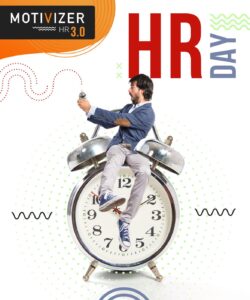Philosophy of Kaizen in the 21st century
In today’s hypercompetitive world, the philosophy of Kaizen is no longer just a focus on operational efficiency, as in the efficiency of producing products and services. In this sense, there is hardly any industry where consultants could not provide countless benchmarks and comparisons to competitors and do without Kaizen.
What is the philosophy of Kaizen?
In the 21st century, the essence and greatest importance of the culture of continuous improvement have shifted to the value chain as a whole and its constant adjustment to the evolving market offering. Today, the philosophy of Kaizen is not only the basic pillar of improvement within the so-called Lean Manufacturing, but it has a much greater significance.
According to the philosophy of Kaizen, which originated from Japanese factories, every employee should contribute to improving the company’s functioning. All processes taking place in individual company departments are subject to a thorough assessment. Employees are looking for three unwanted phenomena:
- muda (activities that do not bring added value),
- mura (randomness and lack of standards),
- muri (excessive effort).
Kaizen in Building a Competitive Advantage
Today, Kaizen has become an essential part of building a value chain that provides a lasting competitive advantage. One of the key challenges facing companies in the 21st century is the loss of the ability to rely on one or a few strategic competencies or resources.
There are no longer such competencies that cannot be bought or copied, or resources that cannot be obtained or replaced. The value chain as a whole has become the main line of competition – its internal coherence and constantly refined tight fitting of the actions taken to the market proposal. The market offering, also known as the unique value proposition, constantly evolves under the influence of changing customer requirements and competitor actions.
With the help of actions aimed at building continuously adapting value chains, Kaizen comes to the rescue. Its main goal is to identify and eliminate all unwanted phenomena in processes, while constantly improving the quality of products and services. This, in turn, translates into lower costs, increased efficiency and customer satisfaction, and, last but not least, building a competitive advantage.
Kaizen in Practice
This means that individual tasks or components don’t necessarily have to be the cheapest – they have to change so that they are always perfectly aligned with the offer that is aimed at the market.
The key to success has become the continuous evolution not only maintaining the highest operational efficiency, but above all constantly adapting the chain of tasks performed to changing market requirements. One of the most famous examples of the application of this philosophy is the development of the iPad manufactured by Apple. Its development program has become, in essence, a program of continuous improvement – the evolution of the product within the changing market requirements.
In Poland, besides numerous smaller and larger companies using the Kaizen philosophy, one of the most interesting examples of restructuring the style of operation and thinking about the value chain in accordance with Kaizen is PKP Energetyka – a former state-owned enterprise responsible for comprehensive energy supply, primarily for rail.
It is significantly easier to introduce Kaizen in private, market-typical companies, where it is simply a “system of thinking and action” that replaces the less efficient concept of “achieving goals by all available means and methods”.
In the case of PKP Energetyka, both the previously shaped organizational culture of the state-owned enterprise and the size of the company in conjunction with the complexity of its activities were not objectively easy conditions.
Nevertheless, the philosophy of “constant pursuit of perfection” seems to work very well here – the result of introducing Kaizen are, among others, an increase in safety and comfort of work, easier implementation of digitalization projects, and even improved communication within the company.
In Poland, besides numerous smaller and larger companies, one of the most interesting examples of restructuring the style of operation and thinking about the value chain in accordance with Kaizen is PKP Energetyka.
Author of the text: Piotr Dubno, lecturer of the MBA program at the French Institute of Management and a Member of the Motivizer Board.
Recent Posts:
- Capital24.tv Debate with Piotr Dubno – “Economy, Innovation, Investments. What Changes Await Us?
- The future of HR – what will be the key to organizational success?
- Are you keeping up with the idea of a modern workplace?
- Burnout, how can an employer help an employee?
- Digitalization of HR is key to unlocking the full potential of an organization

